Legal educators in their first three years of teaching gathered in late June in Washington, D.C. for the AALS Workshop for New Law School Teachers. This annual three-day workshop integrates new and emerging faculty and scholars into the legal education community.
The workshop is designed to give incoming professors a head start in their new career. Law schools nationwide have experienced shifting expectations for new hires, including simultaneous contributions as scholars, teachers, mentors, and active institutional citizens from their first year. The program at the workshop served as a guide for that transition, and included plenary speakers, panel presentations, small group discussions, and other formats.
The format of the workshop is designed to maximize time spent in small groups and informal, one-on-one interactions. Participants are encouraged to share their experiences and concerns both with each other and with the slate of speakers and presenters, all of whom are chosen by the Workshop Planning Committee for their commitment to legal education, the distinction they have achieved in their own careers, and the diversity of their scholarly efforts and approaches to teaching.
Participants discussed how to apply presented concepts within their own schools, as well as develop solutions to common areas of tension for incoming and transitioning faculty members.
“When I talk to participants here, what I see is people starting to formulate more specific plans around their teaching, scholarship, or citizenship that they didn’t have when they came in,” said Workshop Planning Committee Chair D. Gordon Smith, Dean of Brigham Young University, J. Reuben Clark Law School. “To me, that’s the sign of success. They’ve actually put something concrete into their hopes for their new career.”
The workshop began on the evening of Thursday, June 22, with small group discussions and a sponsored dinner and reception which included a plenary address from AALS Immediate Past President Kellye Y. Testy, University of Washington School of Law, on the “Relevance of Scholarship to the Practice of Law.”
On Friday, a full day of plenary and breakout sessions kicked off with a plenary from Robin West, Georgetown University Law Center, on “Why Scholarship Matters.” Smith said of the plenary: “One of the things we wanted to accomplish as an organizing committee was to get people to feel like they’re doing something bigger than themselves. They are part of a community of scholars, and the work they do makes a positive difference in the world. Robin conveyed that well in her keynote address.”
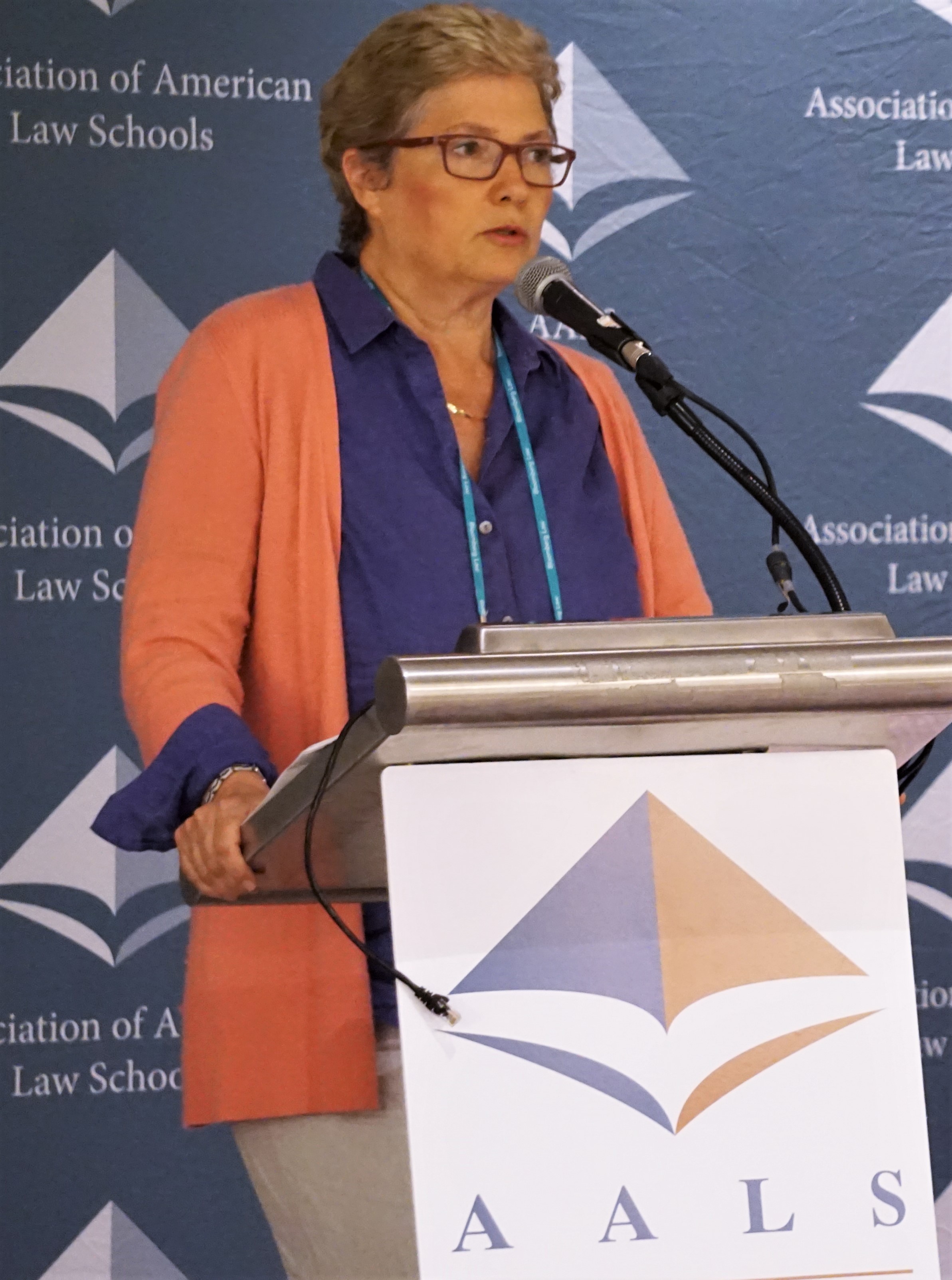 Plenary Session – Why Scholarship Still Matters. Robin L. West, Georgetown University Law Center
Plenary Session – Why Scholarship Still Matters. Robin L. West, Georgetown University Law Center
The day’s schedule covered topics ranging from building a personal scholarly profile to experiments in blending technology with teaching in legal education. Speakers passed along tips and techniques for successful student engagement and assessment, as well as advice about developing, placing, and promoting their scholarship in modern academia.
“One of the things you see in entry-level professors is an eagerness to share,” said Smith regarding the use of technology to disseminate scholarship. “Part of what we’ve talked about today is sharing that type of knowledge publicly through blogging, social media, and other media. Young professors in particular do not want to be confined to the classroom. They want to see how they can use modern technologies to make their views heard more broadly, and I think that’s terrific.”
Friday’s luncheon panel focused on “The Future of Legal Education,” and featured short presentations from Michele Pistone, Villanova University Charles Widger School of Law; Craig Boise, Syracuse University College of Law; and Margaret Hagan, Stanford Law School.
Breakout sessions continued through the afternoon and into the evening, providing participants a venue in which to dig deeper into particular areas of concern. “Most of the breakout sessions have 10 or fewer participants,” Smith said, “So we’re able to get very granular.”
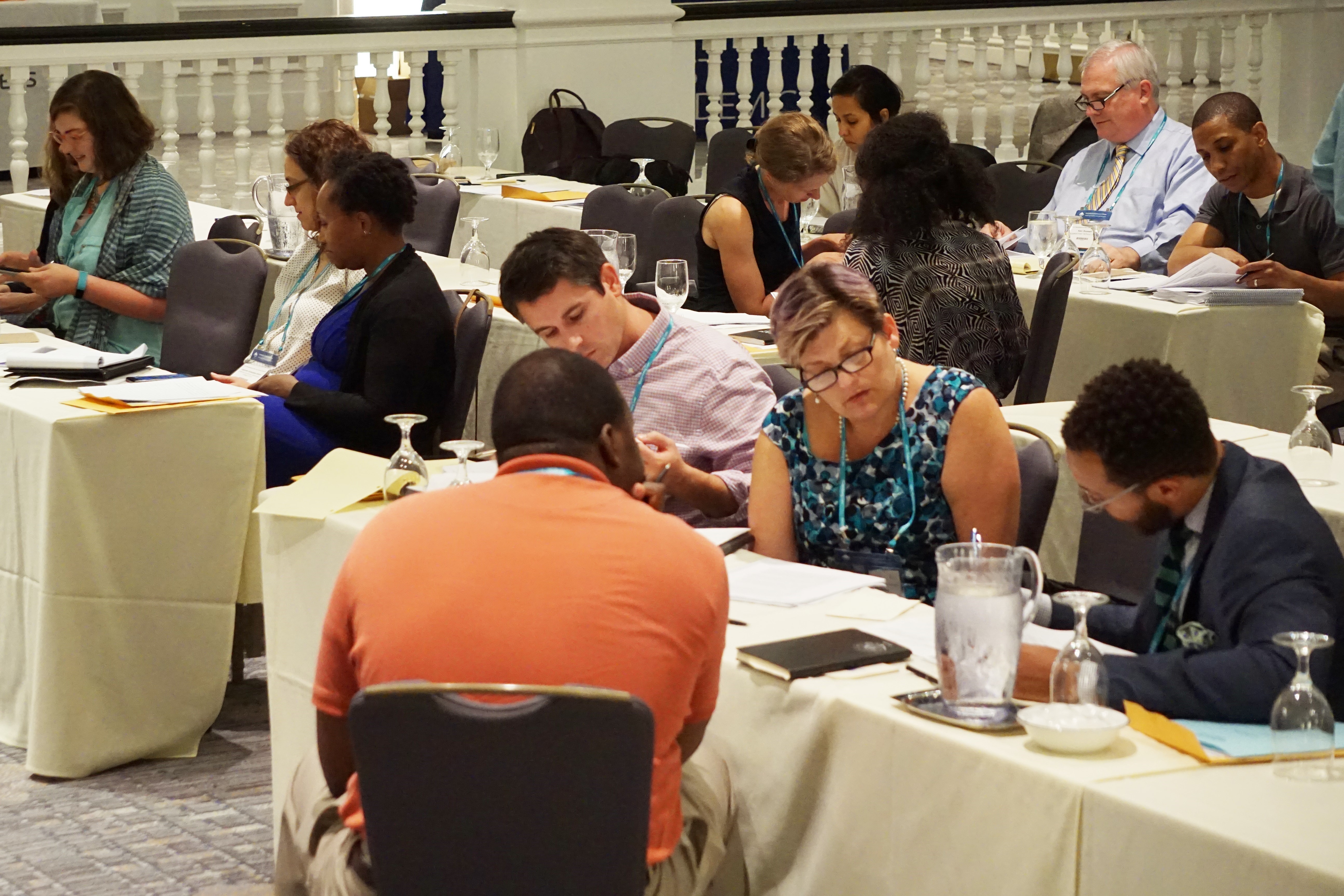 Attendees engage in small group discussions during a session
Attendees engage in small group discussions during a session
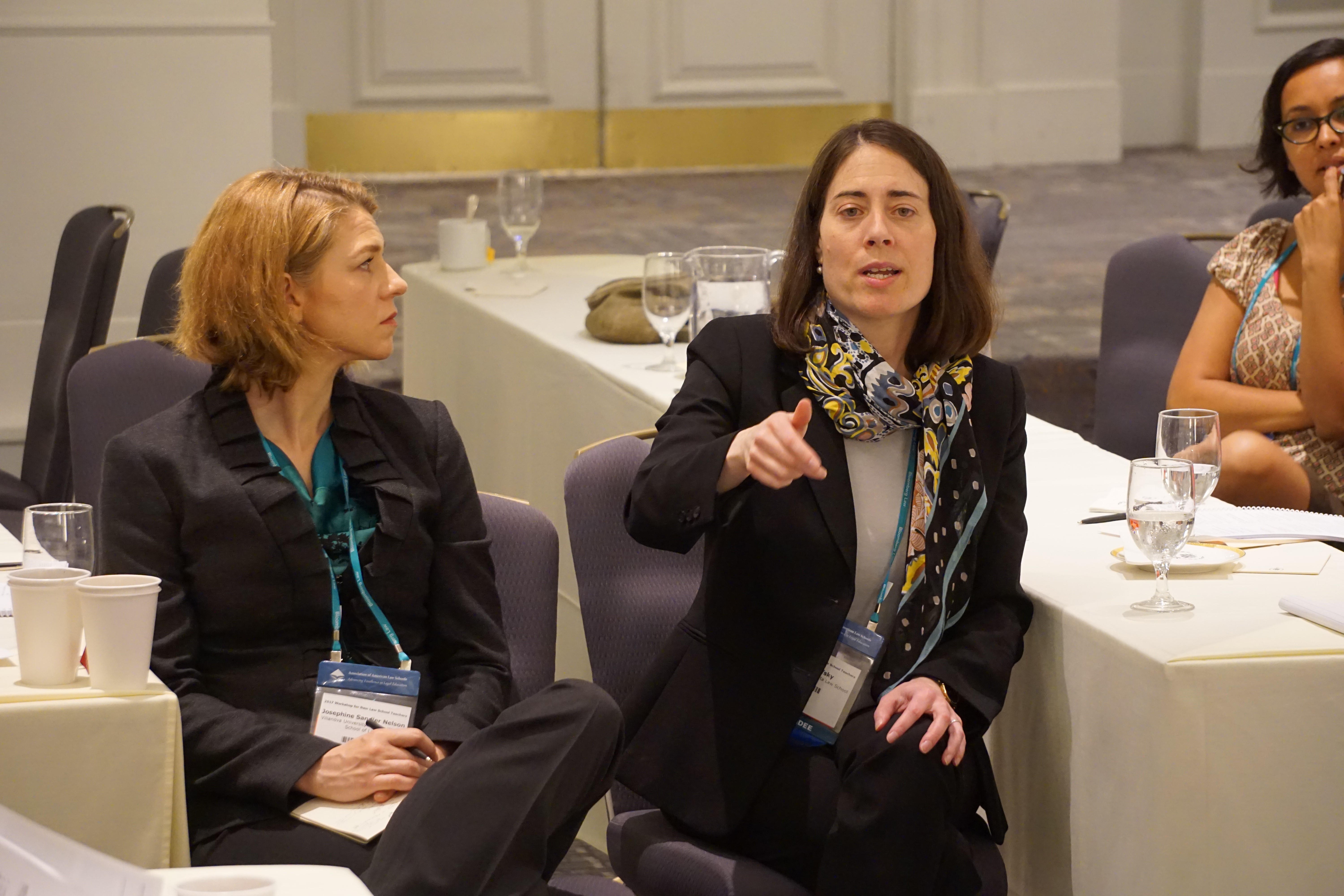 Hari M. Osofsky, Dean, Penn State Law
Hari M. Osofsky, Dean, Penn State Law
The AALS Sections on Women in Legal Education, Sexual Orientation and Gender Identity Issues, and Minority Groups held informal gatherings during the course of the workshop, welcoming new professionals from around the country into the AALS community.
The workshop came to a close on Saturday with a day of plenary sessions and small group discussions on “Learning Theory,” “Teaching Techniques,” “Assessment,” and “Navigating Tenure, Long-Term Contracts, and the Road Ahead.”
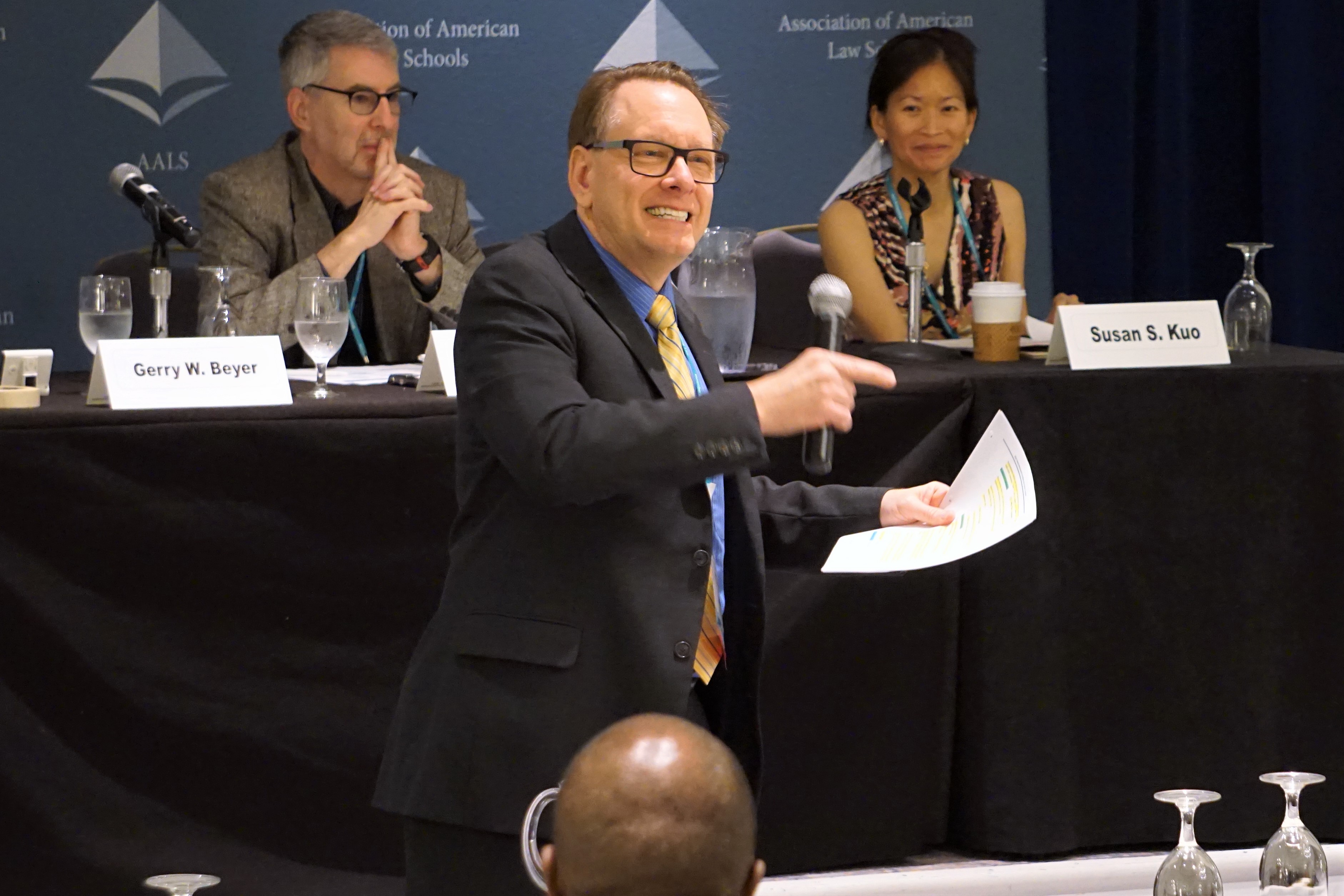 Plenary Session: Teaching Techniques. L-R. Howard E. Katz (Duquesne University), Gerry W. Beyer (Texas Tech), and Susan S. Kuo (U. of South Carolina).
Plenary Session: Teaching Techniques. L-R. Howard E. Katz (Duquesne University), Gerry W. Beyer (Texas Tech), and Susan S. Kuo (U. of South Carolina).
Reflecting on the three-day workshop, Smith said “It’s important to get more of our new law teachers at this conference. It’s not just about conveying knowledge or accumulated wisdom from the experienced professors. It’s about creating a sense of community among legal academics, a sense that they’re part of a group of people who are trying to make society better through law. That shared mission is something we can all get behind. I am still close friends and colleagues from people I met when I attended this workshop years ago.”
AALS extends its thanks to the Planning Committee for the 2017 AALS Workshop for New Law School Teachers:
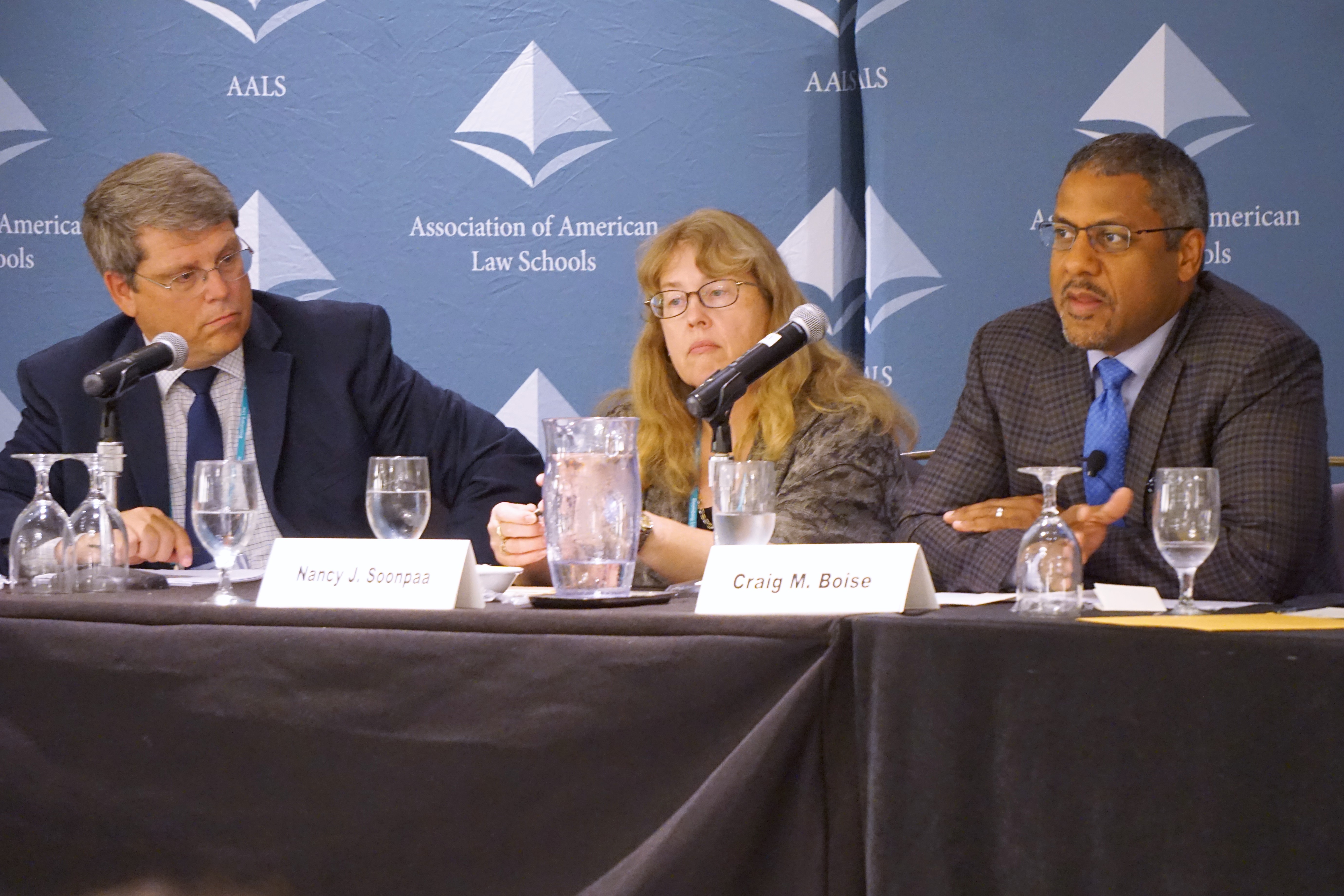 Plenary Session: Navigating Tenure, Long Term Contracts, and the Road Ahead. L-R. D. Gordon Smith, Brigham Young University, J. Reuben Clark Law School; Nancy J. Soonpaa, Texas Tech University; and Craig M. Boise, Syracuse College of Law.
Plenary Session: Navigating Tenure, Long Term Contracts, and the Road Ahead. L-R. D. Gordon Smith, Brigham Young University, J. Reuben Clark Law School; Nancy J. Soonpaa, Texas Tech University; and Craig M. Boise, Syracuse College of Law.